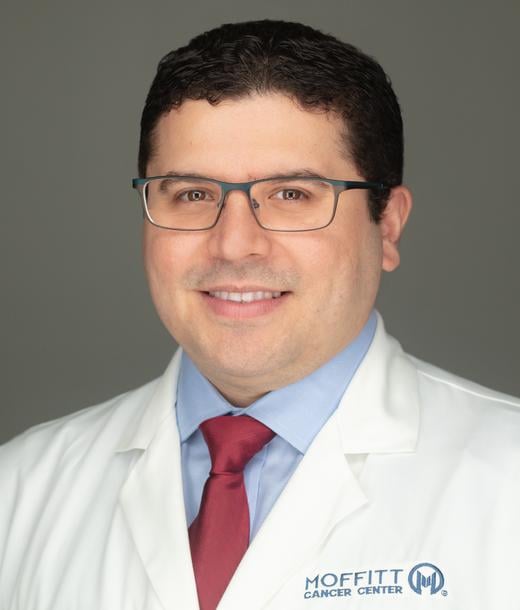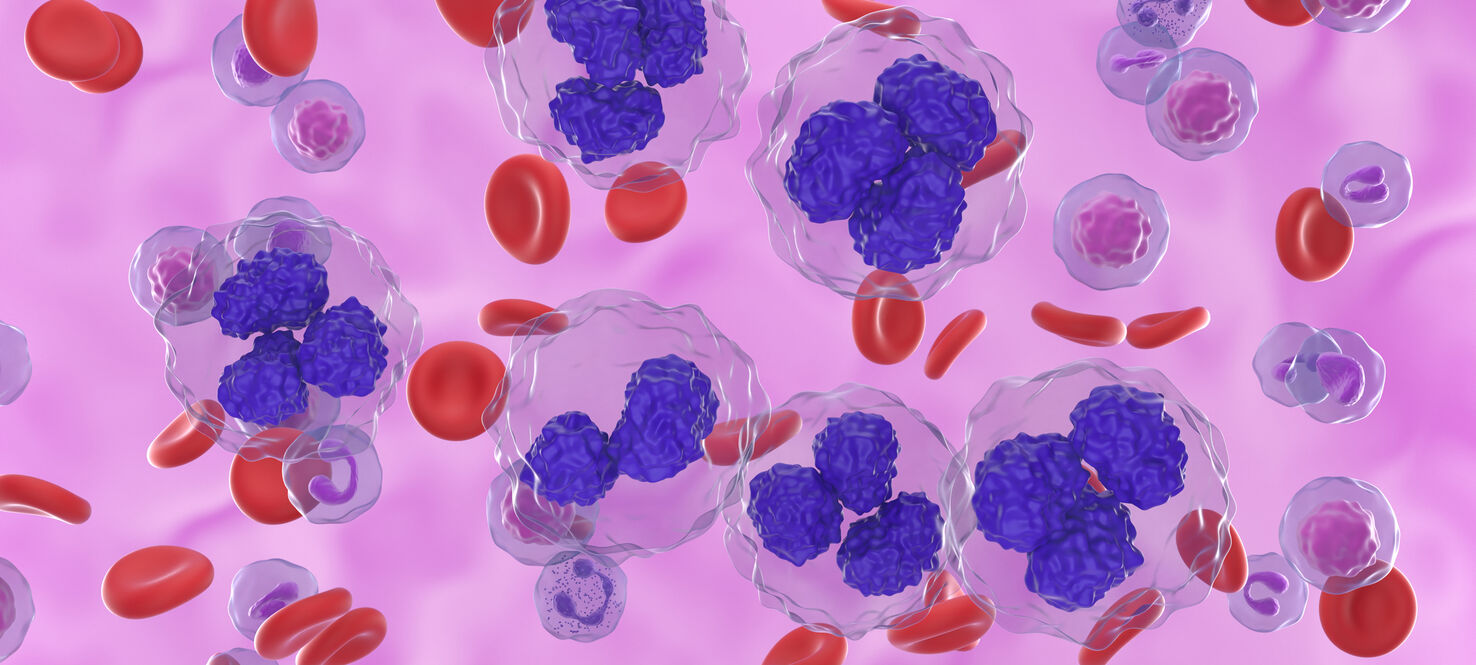FDA Approves New Immunotherapy for Follicular Lymphoma
Follicular lymphoma is a slow-growing cancer, but it can be relentless. While it can be managed with current treatments, it is considered incurable, and many patients face repeated relapses. Now, there is a new treatment option for these patients. The U.S. Food and Drug Administration has approved epcoritamab, an innovative immunotherapy for patients with relapsed or refractory follicular lymphoma.
 Sameh Gaballa, MD
Sameh Gaballa, MD
“Follicular lymphoma relapses can be very discouraging for patients,” said Sameh Gaballa, MD, a medical oncologist in the Malignant Hematology Department at Moffitt Cancer Center. “Traditional treatments can become less effective with each recurrence, and patients often have limited options.”
Epcoritamab works differently than traditional therapies. Instead of attacking cancer cells directly, it trains your body’s immune system to fight the cancer. Epcoritamab is a bispecific antibody designed to bind to two different antigens simultaneously, allowing it to engage two different targets: proteins on T cells and proteins on follicular lymphoma cells. By latching onto both types of proteins, epcoritamab guides T cells directly to the cancer cells. This targeted approach allows your immune system to destroy the lymphoma cells more precisely.
 Julio Chavez, MD
Julio Chavez, MD
“Epcoritamab represents a new approach to fighting follicular lymphoma,” said Julio Chavez, MD, a Moffitt medical oncologist and one of the principal investigators of the epcoritamab clinical trial. “By harnessing the body’s natural defenses, this therapy has the potential to be more effective and have longer-lasting benefits for patients.”
The results from clinical trials are promising. Moffitt was a clinical trial site for the study, which involved 127 patients with relapsed follicular lymphoma. Results showed that a significant majority, 82%, responded positively to epcoritamab. Even more encouraging, 60% of patients achieved complete remission, meaning there was no evidence of cancer after treatment. Early data suggests these benefits may be long lasting, with many patients continuing to do well after nearly 15 months.
-
127
Patients enrolled in the phase 1/2 clinical trial
-
82%
Patients who responded to epcoritamab
-
60%
Patients who achieved complete remission
-
15 Months
Patients experience benefits for many months
“Epcoritamab is a welcome addition to our treatment options for patients with relapsed follicular lymphoma. We’re excited about its potential to improve patient outcomes,” Gaballa said.
Bispecific antibodies like epcoritamab represent a significant advancement in cancer therapy, marking a new era in immunotherapy. Moffitt is at the forefront of developing and advancing these innovative treatments. Since the first bispecific antibody, blinatumomab, gained FDA approval in 2014 for acute lymphoblastic leukemia, the field has rapidly evolved, with several bispecific antibodies now approved for a range of hematologic malignancies and solid tumor cancers.



